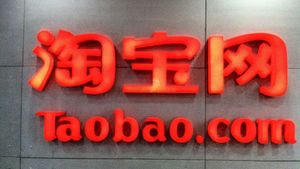On the evening of February 21, 2025, the Central Commission for Discipline Inspection and the National Supervisory Commission announced the investigation of Shang Baogang, former Secretary of the Hubei Provincial Party Committee, for serious disciplinary violations. This marks the latest move by Chinese authorities to reinforce accountability among senior officials, stressing the party's unwavering commitment to uphold discipline.
Shang Baogang, who has had a significant presence within China's banking sector for over 30 years, has found himself embroiled in scrutiny amid growing public concern over governmental transparency and efficacy during the COVID-19 pandemic. Previously serving as the Secretary of the Hubei Provincial Party Committee during the early phases of the outbreak, his leadership has come under fire following accusations of misconduct during this pivotal time.
Held accountable by party authorities, Shang's case was discussed at the Hubei Provincial Party Committee meeting led by Secretary Wang Zhonglin. The meeting highlighted the party's resolve to deter corruption, echoing sentiments from top leadership about the necessity for strict governance and adherence to party discipline. Wang Zhonglin stated, "We must learn from this case and remain vigilant, ensuring the integrity of the party is upheld," reflecting the seriousness of the current anti-corruption campaign.
Shang Baogang was born in August 1957, hailing from Hubei Province. Before his official roles, he started his career working at local art facilities and later pursued higher education at Hunan University of Finance and Economics, graduating as one of its first degree-holding students after the school’s elevation. With his deep banking roots, Shang escalated through various ranks, having served key roles including President of the Agricultural Bank of China, Deputy Director of the People's Bank of China, and eventually transitioning to hold significant positions within provincial leadership.
His political rise was marked by both challenge and recognition. Notably, during the 1997 Asian financial crisis, he played what many referred to as the role of “fire fighter,” being rapidly deployed to manage banking crises as economic conditions deteriorated, showcasing his ability to handle high-pressure situations. His leadership was applauded then, which likely laid the groundwork for his subsequent appointments.
Prior to the COVID-19 pandemic, Shang's actions as provincial party secretary were aligned with Baogang's enduring philosophy of confronting challenges head-on. After the pandemic's outbreak was confirmed, Shang urged officials to enter ‘wartime mode’ and take decisive actions for outbreak containment, leading meetings to strategize the province's response.
Nonetheless, criticism followed inexorably after it was revealed how the Hubei officials, including Shang, managed communication during the virus’s initial phase. Reports suggested attempts to silence public outcry and shield the state from blame, generating lasting reputational damage not only for Shang but also the broader governmental structure.
After facing mounting pressure, Shang was removed from his role as secretary of the provincial committee on February 13, 2020, and was replaced by the then Shanghai Mayor, Ying Yong. The investigations announced now are largely perceived as an extension of the state’s accountability mechanism, reflecting the higher scrutiny disposition generated by his earlier management of the pandemic.
The recent disciplinary actions involving Shang are also reflective of the comprehensive campaigns implemented by President Xi Jinping's administration, striving to maintain high vigilance against corruption at all government levels. Party leadership continues to reinforce the message articulated by Wang Zhonglin at the recent meeting: "The decision by the Central Committee reflects the determination to uphold strict party discipline and address the unique challenges faced by the party." This framework aims to build public trust and avert the legal and moral pitfalls seen during earlier interactions with both the pandemic and the greater governance paradigm.
The pressure for Chinese officials to act with transparency and integrity is seen as more imperative than ever, particularly as the nation seeks to navigate the post-pandemic reality. Officials across all levels are reminded of the need to align closely with party principles, ensuring their decisions reflect the collective integrity the party strives to uphold. The investigation of Shang Baogang serves not only as a cautionary tale but also as proof of the party's unyielding watchfulness over its ranks.
Shang's fate now resides within the framework of Chinese political turmoil and reform. Every leader's job is precarious under the current spotlight on corruption and transparency. The narrative surrounding his investigation sends shockwaves across the political fabric of the nation, prompting calls for clear accountability among all party ranks. It remains to be seen how this investigation will conclude and what it means for the future of the governing faction within Hubei Province and beyond.



